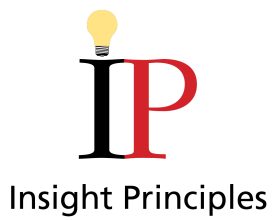by pressablealiassolutionscom
Share
Welcome to Insights and Implications!
Greetings! People in our programs often ask us how to “do” insight. In this month’s letter, Cheryl Bond gives us a helpful hint…read on to learn more!
My coaching clients often have leadership development goals to build relationships, improve followership, and inspire their teams. Lately I’ve noticed how easily and readily they have helpful ideas around these topics…especially when they trust the built-in nature of insight.
For example, my client Mike is working on these goals and it occurred to him to look for opportunities in this realm. In a recent coaching session he told me he looked up the work anniversaries for his team and discovered that one guy was coming up on a year with the company. So he took him out to lunch. We never discussed this as an action step, so I asked him how he thought of it. He didn’t remember, it just came to him. He’s naturally a low-key guy who is friendly but not outgoing or relationship oriented. He works in a manufacturing environment for a manager who is not outgoing or people oriented. So it’s not like he’s surrounded by examples for motivating and retaining employees.
Mike is in a leadership development program chock full of tips, techniques, frameworks, and models. It’s an excellent program with lots of group discussions and exercises. However, as we’ve mentioned before, intellectual content (tips, frameworks, models) alone doesn’t lead to behavior change without a personal insight. Without insight, they are just someone else’s good ideas that don’t look possible for you to implement in your circumstances or that you have to remember.
As another example, Lisa works for a biotech company with a busy team of motivated professionals who are in danger of burning out. Lisa herself is on the verge of burnout and her manager wants her to delegate more. Initially she could not imagine asking her people to take on anything else. In our coaching meeting we talked about delegating for development and motivation, but Lisa thought her people had too much on their plates – she didn’t want to add to their workload. I suggested she “back-burner” the idea to delegate for development and see what occurs to her. It was mid-year review time in her company, so she would be having discussions with her team anyway.
At our next meeting, Lisa shared an insight. While she was talking with one of her people, she realized he loved seeing the broader picture of the work, especially when he had the opportunity to learn more about the work being done by the global component of their team. It occurred to Lisa that he might be able to represent her in a bi-monthly status review with the global team. It would give him the opportunity to learn as well as increase his organizational visibility. She ran the idea by her manager, who was thrilled that Lisa was seriously trying to delegate, and got the OK. She quickly outlined a plan for the hand-off, and her employee is excited about the opportunity.
Both of these examples highlight the power of the human mind to have insights, to see something new or realize something for themselves. You can’t force yourself to have an insight. But we’ve all had occasions when we surprised ourselves with a novel idea or saw a solution to a long-standing problem. If you look back on those situations for yourself, you’ll see that insights often sneak up on us when we least expect them. It’s like a channel suddenly opens up and a new thought or solution appears effortlessly.
This is how the human mind works. We have limitless potential to tap into wisdom and creativity. When we let the mind work as it’s designed to, good things happen.
Your next insight is waiting for you…all you have to do is trust, and give it a chance to emerge.
-Cheryl Bond
